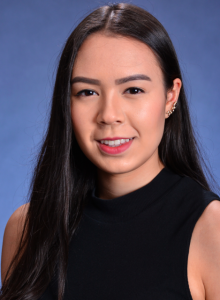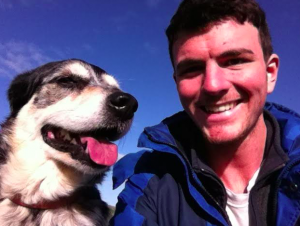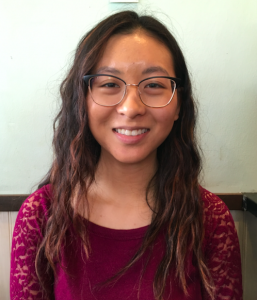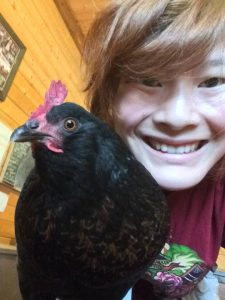Hello!
We are a group of students who share a common interest in the food system that supplies our residence mini-fridges with fruits and vegetables and a little bit of meat. We are all interested in healthy eating and engaging in healthy living practices.
In our lives, we hope to make a positive difference in our local food sector, whether it’s through an understanding of animal welfare issues, food and resource economics, agroecology, or human nutrition.
Meet our team

Yee Jin Low
Hi there! My name is Jin and I am a person who enjoys giving back to the community and helping those in need. I love to keep myself fit and healthy through various activities such as basketball or running. Eating healthy is also what I strive for as I continue to learn about different methods of achieving body-related goals. Aside from this, I am excited to be working with BCAFM to help the farmers’ markets within BC expand to greater heights.

Monique Sargent
Hello! My name is Monique and I am a 3rd year student majoring in Food Market Analysis. I have lived in Vancouver all my life, but I love travelling. My favourite place I have travelled to is Jamaica. A few of my hobbies include playing sports like basketball and volleyball, hiking and binge-watching new TV series on Netflix (I’m currently watching black mirror).

Jeff Holmes
My name is Jeff. I’m in my 3rd year of the FNH major, have lived in Canada, US, Africa, and Australia. Grade 7 was my senior year and I’m a big fan of travelling! When I’m not doing my pre-readings for LFS 350, I like to swim, go to the gym, and grow vegetables! I work as a lifeguard/swim instructor but have only administered 3x band-aids in my 3 year career.

Dylan Kennedy
My name is Dylan and I am a 4th year student in the Global Resource Systems program in LFS. My degree focuses on sustainable agriculture and resource economics with a regional focus on the Americas. After my undergrad in LFS, I hope to pursue graduate studies in agroecology or begin working in a agriculture or food-related small business with a focus on sustainability. Some of my favourite activities include hiking, playing sports, brewing, and enjoying time with friends and family.

Patricia Lee
My name is Patricia and I’m a 4th year student in the Food, Nutrition, and Health program. I’m passionate about sustainability and dance – I’ve been involved with an on-campus food co-op for three years and I’ve been dancing since I was 3! In my spare time, I enjoy spending time with my guinea pigs and rabbits, as well as hiking.

Maria Chen
Hello, my name is Maria and I study Applied Animal Biology. I am quite obsessed with animals, some of my animal encounters include training a 200kg pig, caring for (and getting attacked by) baby seals, and getting stuck in a trailer with a wildebeest. In my spare time, I enjoy hanging out with my dog and my rats, horse riding, and creating art. My future goals are to work with Chinese farmers to improve farm animal welfare.
Our project
Our project is with the BC Association of Farmers’ Markets, and the goal is to investigate and aid the flow of new farmers into BC farmers’ markets.
We will help achieve this goal by creating a survey to collect:
- Quantitative data such as number of farmers entering and exiting the BC farmers markets
- Qualitative data such as what barriers farmers face when entering the market, and what reasons farmers have for leaving the market
Our team chose this project because we wish to engage with local farmers and learn the opportunities and challenges they face. We are also excited to attend and present at the BC Farmers’ Markets conference in March!
We wish to gain experience with survey development, data analysis, effective communication, and Asset-Based Community Development. We hope we will contribute in aiding the flow of new farmers into the farmers’ markets.
First impressions
In our first meeting, we received a warm welcome from the team at BC’s Association of Farmers’ Markets as we met with Melissa and Heather, who are the main coordinators of this project. We immediately began the task of planning our project, and we were surprised by how involved we were in the process of decision making. We were able to efficiently agree on deadlines and objectives. The meeting went very smoothly and there were no disagreements in this first session.
We were able to apply some of the concepts we learnt about in LFS 350 to our community project:
Transdisciplinary knowledge generation
According to the International Panel of Experts on Sustainable Food System (2015), food systems knowledge should be generated by reaching both across the scientific disciplines and beyond the bounds of the scientific community. We believe that we will be generating transdisciplinary knowledge through our online survey with farmers, and in-person interviews with market managers at the conference. We are excited to be co-producing crucial information and knowledge with important social actors such as farmers and managers.
Listening to the community
As Sirolli (2012) mentions, it is of utmost importance to listen to members of the community, and we feel by surveying and communicating with the BC farmers, we are listening directly to their stories and learning more about their challenges and experiences.
Asset Based Community Development
We will also be engaging in Asset Based Community Development (ABCD). According to Mathie and Cunningham (2003), the initial step to ABCD is to construct shared meaning by finding out the assets and strengths of the community you’re working with. We believe by surveying the farmers who wish to enter farmers’ markets, we will gain insights into their assets such as what they produce and what they are good at. This information can then be utilized so that these entering farmers can be best matched with markets which are looking for vendors.
Food justice
Initially, our team had some difficulty relating the topic of food justice to our project, but upon further reflection, we started to see a link between the two. Food justice represents “a transformation of the current food system, including but not limited to eliminating disparities and inequities” that constrain food choices and access to good food for all (Gottlied and Joshi, 2010: ix). Through our project, we hope to help identify barriers which prevent farmers from entering farmers markets to promote the economic viability of BC farmers.
As a few of our team members are Chinese, we were able to make an interesting observation comparing Chinese and Canadian farmer’s markets. We noticed that in China, farmer’s markets are ubiquitous and have products which are very cheap, making fresh produce easily accessible and affordable to everyone. They are places where even the poorest can afford large amounts of healthy food products. In fact, richer people in China often prefer to go to supermarkets (which sell imported goods) since they believe these products may have met higher food safety standards. In contrast, the Canadian farmer’s markets are far less commonly found and the products are even more expensive than ones found in supermarkets. To have a healthy, locally sourced meal has almost become a luxury, and that certainly shouldn’t be the case!
This reflection helped us to see the potential limits of BC farmer’s markets in addressing food justice issues. From a consumer’s perspective, BC farmer’s markets may not be making healthy, local produce easily available to all of the population, especially those with low income. From the farmer’s side of things, we hope that through our surveys we can learn about the demographics (such as ethnicity and gender) of the farmers who are entering and exiting the farmer’s markets, to identify potential inequalities there.
Check back again next time to see how our project is going!
References
Gottlieb, R., & Joshi, A. (2010). Food Justice. MIT Press.
iPES-FOOD. (2015). The New Science of Sustainable Food Systems: overcoming barriers to food system reform. International Panel of Experts on Sustainable Food Systems. pp.1-17.
Mathie, A., & Cunningham, G. (2003). From clients to citizens: Asset-based Community Development as a strategy for community-driven development. Development in Practice, 13(5), 474-486.
Sirolli, E. (2012). Want to Help Someone? Shut Up and Listen! Retrieved from https://www.ted.com/talks/ernesto_sirolli_want_to_help_someone_shut_up_and_listen#t-5461